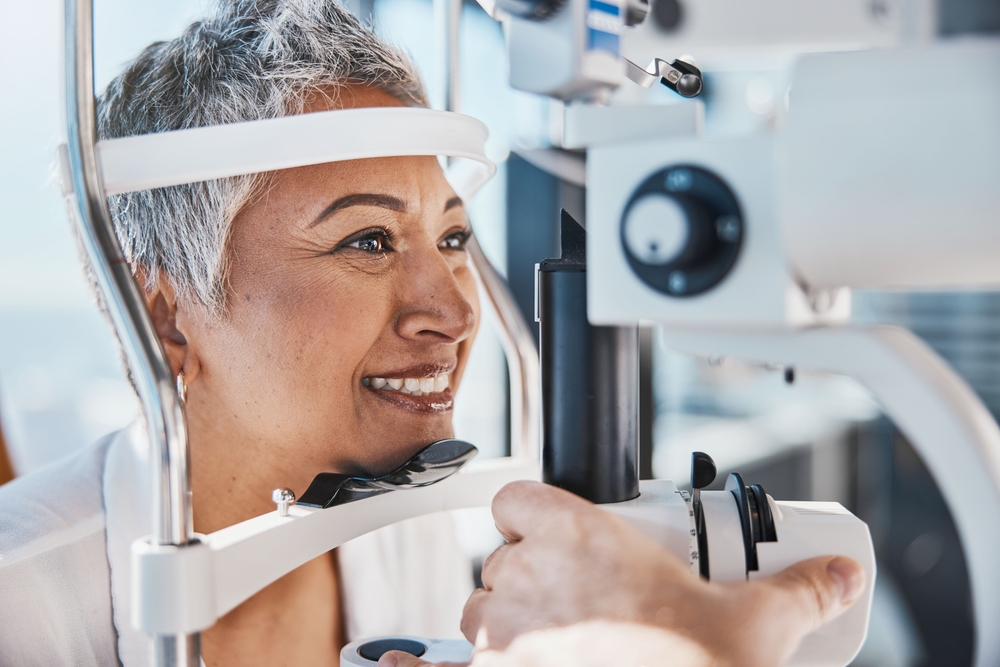
Diabetic retinopathy is a complex condition arising from prolonged high blood sugar levels in people with diabetes. The light-sensitive tissue at the back of the eye, the retina, is nourished by tiny blood vessels.
When blood sugar levels remain high, the blood vessels are damaged over time, leading to diabetic retinopathy. Diabetic retinopathy manifests as two primary types. Nonproliferative retinopathy is the early stage. It is accompanied by small bulges in the blood vessels of the retina.
As the condition progresses, the blood vessels may leak fluid or blood, causing vision problems. New blood vessels may develop on the retina surface in the proliferative stage. This may cause severe vision impairment. Clearly, learning how to protect your eyesight when you have diabetes is vital.
The Importance of Blood Sugar Control
Maintaining optimal blood sugar levels helps in preventing and managing diabetic retinopathy. Consistent high blood sugar can damage the blood vessels in the eyes, leading to retinopathy. Individuals with diabetes can minimize their risk of developing this condition through the following:
Medication
Diet
Exercise
Regular monitoring
Regular Eye Exams
Regular eye exams are important for early detection and treatment of diabetic retinopathy. Individuals with diabetes should have comprehensive eye exams. They must have them at least once a year or as their eye care professional recommends. The exams can detect the earliest signs of retinopathy. They do so before symptoms manifest, allowing for timely intervention and treatment.
Blood Pressure and Cholesterol Control
Managing blood pressure and cholesterol levels is essential for preventing diabetic retinopathy. Lack of control can further damage the blood vessels in the eyes and exacerbate retinopathy risk. Regular monitoring and appropriate management of these factors are vital. You can do so through lifestyle changes and medication.
Healthy Lifestyle Choices
Adopting a healthy lifestyle is beneficial for your well-being. It can protect your eyesight when you have diabetes. Routinely exercising and a balanced diet help in maintaining good eye health. Avoiding smoking and excessive alcohol consumption also helps. These lifestyle choices improve blood circulation. They reduce complication risks for diabetic retinopathy.
Regular Medication Management
Managing diabetes medications is crucial for preventing diabetic retinopathy and maintaining health. Work with your healthcare provider to ensure you take the appropriate medications at the correct dosages.
Adherence to a prescribed medication regimen is vital to stabilize blood sugar levels. It also helps cut the risk of complications that could lead to vision problems. Take medications as directed.
Follow recommended dietary guidelines and monitor blood sugar levels. Communicating with your healthcare team is crucial. They can adjust your medication plan based on your needs and response to treatment.
Protecting Your Eyes From Further Damage
You can protect your eyes from further damage if you have diabetic retinopathy or are at risk. Avoid activities that strain your eyes. These include prolonged computer use or reading in poor lighting conditions.
Wearing sunglasses with UV protection and maintaining good eye hygiene can also help. These habits can preserve your eyesight.
For more information on diabetic retinopathy or to get your eyes examined, visit Gulf Coast Retina Center. Be seen today at our office in Sarasota or Venice, Florida. Be seen today or call (941) 312-2769 to schedule an appointment.








